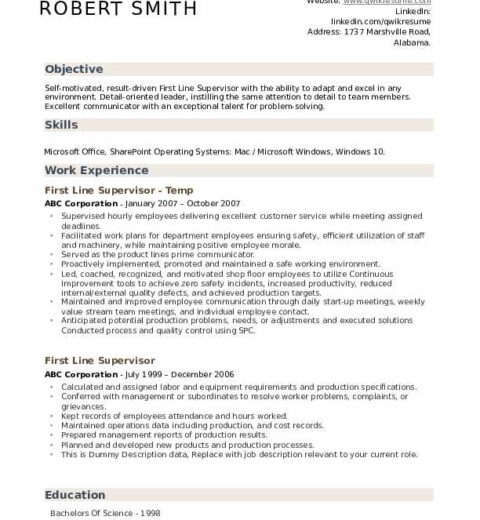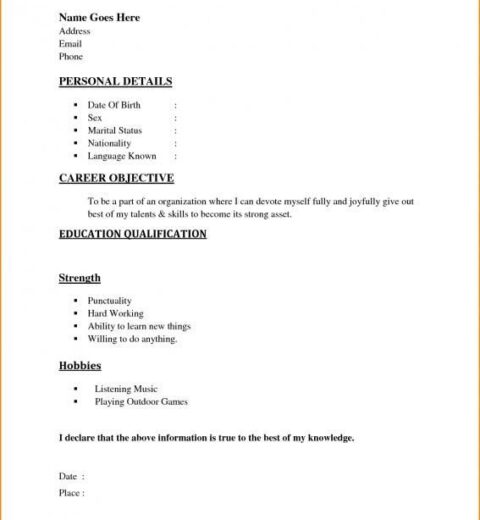When crafting a compelling resume, one of the critical sections that recruiters scrutinize is the education segment. This part of your resume provides insight into your academic qualifications and can significantly influence hiring decisions. A well-structured education section not only showcases your formal learning but also strengthens your overall credentials. Below is a comprehensive guide on how to write the education section on your resume effectively.
1. Understand the Importance of the Education Section
For many employers, your educational background is a reflection of your competency and commitment to your field. A solid education indicates a foundation of knowledge, while specific degrees or certifications may also be prerequisites for particular roles. Therefore, it is essential to present this information accurately and appealingly.
2. Decide on the Placement
Your education section should be strategically placed in your resume. For recent graduates with limited work experience, it may be beneficial to position this section near the top, right after your summary or objective. Conversely, for seasoned professionals, the education section might be moved to the bottom of the resume, where it complements extensive experience.
3. Format Your Education Section
A streamlined format enhances readability. Here is a widely accepted structure to follow:
- Degree Type (e.g., Bachelor of Arts, Master of Science): This specifies the level of education you’ve achieved.
- Field of Study: Include your major and any minors, as these indicate your areas of expertise.
- Institution Name: Make sure to provide the full name of the educational institution, along with any well-known abbreviations.
- Location of the Institution: Mention the city and state, enhancing context for the prospective employer.
- Graduation Date: List the month and year you graduated or your expected graduation date. If relevant, you may also include your GPA if it is commendable (generally above 3.0).
4. Use Clear and Concise Language
In your education section, clarity is paramount. Avoid unnecessary jargon or overly complex language. Provide concise details that articulate your academic achievements and qualifications clearly. For example:
Bachelor of Science in Marketing University of California, Los Angeles Los Angeles, CA Graduated: June 2020 GPA: 3.6
5. Tailor Your Content for the Role
Customization can significantly bolster your resume. If a job description emphasizes certain skills or knowledge areas, ensure that your education section underscores any relevant coursework or projects that align with those requirements. This precision demonstrates not only competence but genuine interest in the position.
6. Include Relevant Coursework and Achievements
For recent graduates or those in specialized fields, including pertinent coursework can provide additional context and demonstrate particular skills. If your projects or academic work align with the job responsibilities you are applying for, include these details to catch the employer’s attention.
For instance:
Relevant Coursework: Digital Marketing, Consumer Behavior Academic Achievements: Dean's List (2018, 2019)
7. Highlight Certifications and Additional Training
In volatile job markets, having continuous learning initiatives—such as certifications or additional courses—can set candidates apart. For example, if you have pursued certifications from recognized institutions or online platforms related to your field, include them in your education section or create a separate subsection entitled “Certifications.” This helps bolster your qualifications.
Certifications: Google Analytics Certification (2021) Certified Digital Marketing Professional (2022)
8. Address Gaps or Incomplete Degrees
As you prepare your education section, you may encounter gaps or instances where degree completion is in progress. Be transparent about your status. Use phrases like “Candidate for Bachelor’s Degree in…” or “Completed coursework towards…” to clarify your situation. Employers appreciate honesty, along with the commitment to pursuing your education.
9. Professional Development and Lifelong Learning
Emphasizing your lifelong learning approach reflects positively on your character and adaptability. Mention workshops, webinars, and professional seminars attended, especially if those experiences are relevant to your career development. Narrative elements may be added to showcase experiences in a way that aligns with your professional skills or objectives.
10. Proofread and Review
No education section is complete without thorough proofreading. Grammatical errors or typos can severely undermine the professionalism of your resume. Each component must be cross-checked for accuracy, ensuring all facts are current and precise. Well-presented information in the education section can create a favorable impression.
In conclusion, writing an effective education section requires careful consideration and attention to detail. By strategically presenting your academic qualifications and tailoring the content to align with the target job, you not only reinforce your candidacy but also signal professionalism and commitment to prospective employers. A well-crafted education section serves as both a foundation and a launching pad in your career journey.




